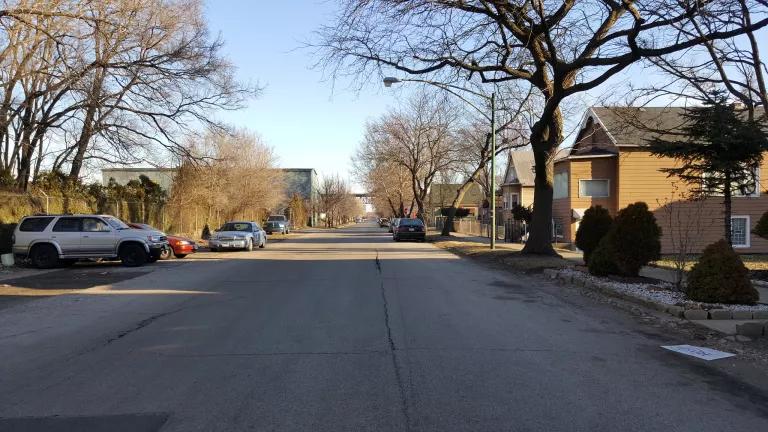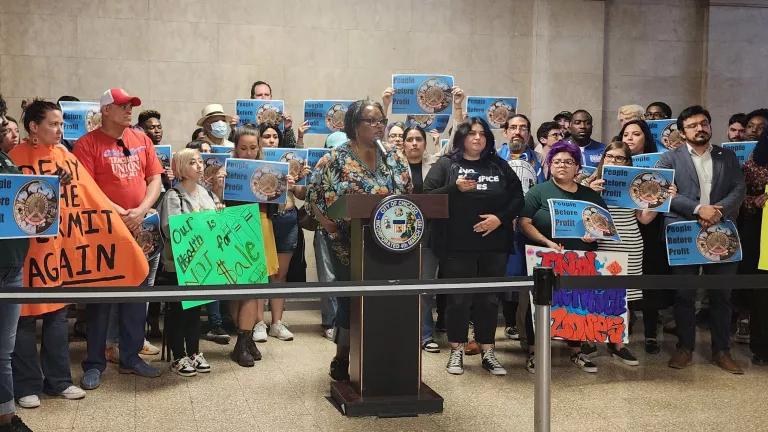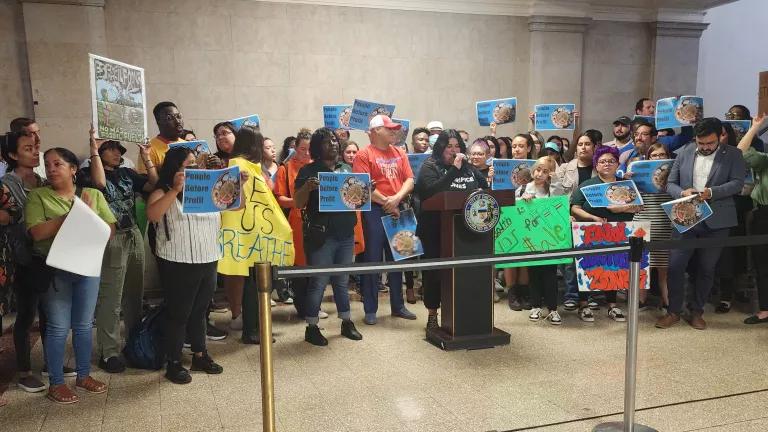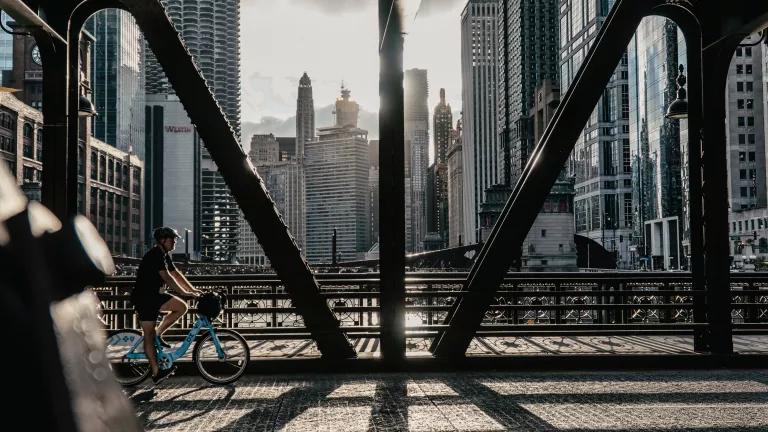Don’t Sacrifice Chicago’s Southeast Side for a Mine
The proposed Invert mining project shows Chicago is a tale of two cities.

S.H. Bell Manganese Southeast Side
Shiny new offices and condo buildings are sprouting up in Chicago’s West Loop, South Loop, and Lincoln Park neighborhoods, while on the Southeast Side, we are fighting to keep an actual mine from breaking ground.
It’s ridiculous that a community that continues to fight against toxic industry brushing up against us at every turn—sometimes literally next to our homes—also has to fight against a project that sounds like it’s coming out of the Lord of the Rings.
The proposed Invert mining project would be in a densely populated area, across the street from George Washington High School. It would result in explosions, likely of dust from both this project and other polluters that have left toxic metals in the soil over the years. It could be one of the most dangerous projects ever proposed for the Southeast Side in decades.
Despite all of the objections from residents and the objectively absurd nature of locating a mine in the third-most-populous city in the country, industry is pushing ahead with the idea.
Chicago is definitely a tale of two cities: There’s a Chicago that is thriving, and another Chicago that is being sacrificed.
The pandemic has only confirmed how race is still a major factor in the health risks that Chicagoans face on a daily basis. Communities like those on the Southeast Side want equity when it comes to deciding the future of their neighborhoods.
Unfortunately, projects like these will continue to come up for consideration until the leaders of Chicago send a strong message that there are no sacrifice zones in our city. We desperately need a citywide policy that addresses disparities and ends racist zoning and land use laws.
Southeast Siders and other environmental justice communities need assurance that projects like the Invert mine are never going to happen in Chicago, and that the city’s zoning laws will actually protect our health and allow us to progress.




